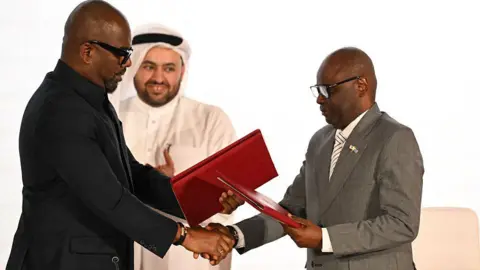For the first time in history, clean air has emerged as a central agenda item at the G20 Summit marking a defining moment in global environmental diplomacy. As world leaders gather in Cape Town, the focus on air quality underscores a growing recognition that clean air is no longer a peripheral issue but a fundamental pillar for protecting human health, combating climate change, and achieving sustainable development.
Outdoor air pollution claims nearly 5.7 million lives every year, making it one of the world’s deadliest environmental challenges. Despite its catastrophic impact, a report released last week revealed that global development financing for clean air remains alarmingly inadequate. In 2023, only $3.7 billion a mere 1 percent of total aid, was directed towards improving air quality, and just a fraction of that reached the African continent.
As the Minister of Forestry, Fisheries and the Environment for South Africa and chair of the G20’s environment workstream, I am proud that this year’s presidency has brought the right to breathe clean air to the forefront of global discussion. This represents a shift in G20 priorities: where Japan’s 2019 presidency focused on marine plastics and Brazil’s 2024 term championed forest finance, South Africa’s 2025 leadership has taken a bold step to address air pollution as a pressing global emergency.
This year’s summit carries particular significance—it is the first G20 presidency hosted on African soil. That symbolism is powerful: Africa is the fastest-urbanising continent in the world, and the choices it makes today about how to power homes, move people, and build cities will define not just its future, but the planet’s. The continent’s rapidly growing population faces an escalating burden from polluted air, visible in rising hospital admissions, decreased school attendance, and reduced productivity. The World Bank estimates that the global economy loses up to 5 percent of GDP annually due to the health and productivity costs associated with polluted air.
This growing crisis has spurred renewed international urgency. Earlier this year, the World Health Organization’s World Health Assembly adopted the world’s first global goal on air quality, committing nations to halve air pollution-related deaths by 2040. While this was a landmark move, without significant financial support and policy implementation, such pledges risk remaining symbolic.
During South Africa’s G20 presidency, member nations identified four major obstacles to achieving cleaner air worldwide. The first is limited institutional capacity to design and enforce air-quality standards. The second is a lack of robust monitoring and reliable data, leaving policymakers and the public in the dark. The third is weak cross-border cooperation, as air pollution does not respect national boundaries. And the fourth — perhaps most critical — is insufficient financing relative to the scale of the problem.
The Clean Air Fund’s recent report paints a stark picture: in 2023, support for outdoor air quality in sub-Saharan Africa fell by 91 percent, amounting to just $11.8 million. To put it in perspective, less than 1/10,000th of global development funding supports clean-air initiatives in one of the regions most affected by pollution. This is not only inequitable but also economically irrational, as investing in clean air yields long-term benefits — from reduced healthcare costs to enhanced economic productivity and climate resilience.
South Africa’s domestic efforts provide a glimpse of what progress can look like. Through the National Air Quality Framework and the National Environmental Management Act, the country has built strong mechanisms for transparency and accountability. Efforts include targeted interventions in industrial pollution hotspots such as the Highveld and Vaal Triangle, as well as an expanded air-quality monitoring network that provides real-time data to the public. These policies are aligned with the country’s Just Energy Transition, which channels investments toward renewable energy, sustainable transport, and improved waste management systems.
However, no country can fight air pollution alone. Airborne pollutants cross oceans and borders, and their effects ripple across economies and ecosystems. That’s why international coordination — backed by predictable, sustained financing — is essential. Development banks and financial institutions must embed clean-air objectives within their broader climate and growth portfolios, ensuring that low- and middle-income countries are not left behind.
Another vital area of focus is data-driven policy. “You cannot manage what you cannot measure,” as environmental experts often say. Expanding air-quality monitoring infrastructure across developing nations is one of the smartest investments the world can make. Reliable data empowers communities, strengthens local decision-making, and fuels innovation in clean technology — from low-emission vehicles to renewable energy solutions.
The message emerging from Cape Town is unambiguous: clean air must now occupy a permanent place at the top table of global policy. The G20’s commitment must translate into measurable progress, with funding and cooperation mechanisms that prioritize regions where the need is greatest — especially in Africa.
Clean air is not just an environmental concern; it is a human right and a driver of economic growth. The same pollutants that endanger our lungs also heat our planet. Addressing them together provides one of the fastest, most cost-effective ways to achieve multiple global goals — from health improvement and climate mitigation to sustainable development and economic equity.
As the G20 deliberations conclude in Cape Town, the call is clear: governments, businesses, and development partners must work hand in hand to make clean air a central benchmark of progress in the global transition. The right to breathe clean air is universal but delivering on that right demands shared responsibility, fair financing, and unwavering political will. The world now stands at a crossroads, and the decisions made here will determine whether the air future generations breathe is a source of life or a silent killer.














Leave a comment